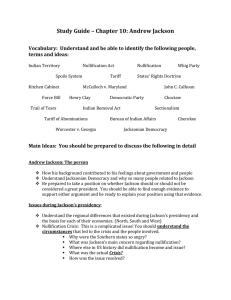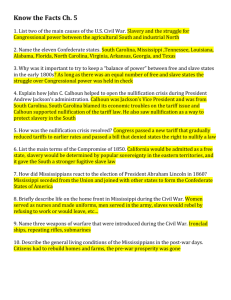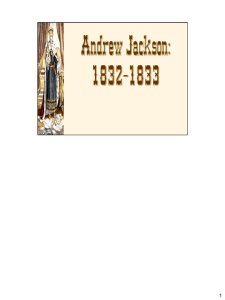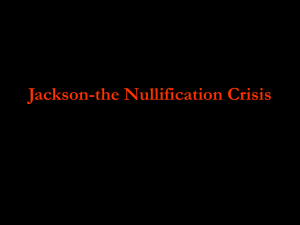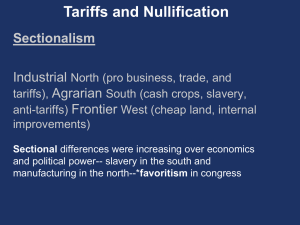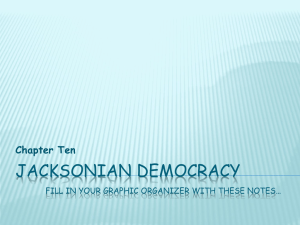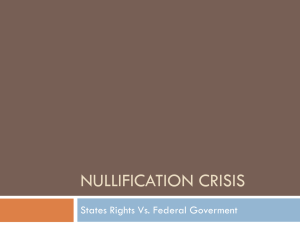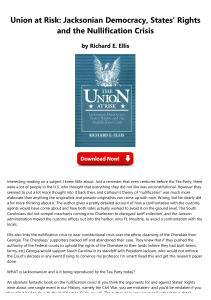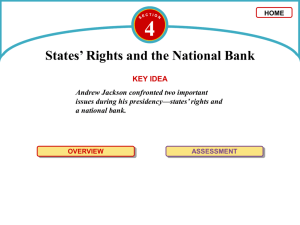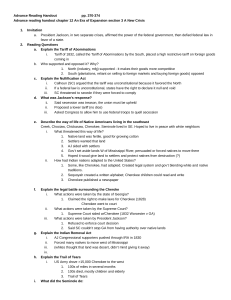Study Guide Chapter 9, Sections 1 and 2 1. Suffrage – the right to
advertisement
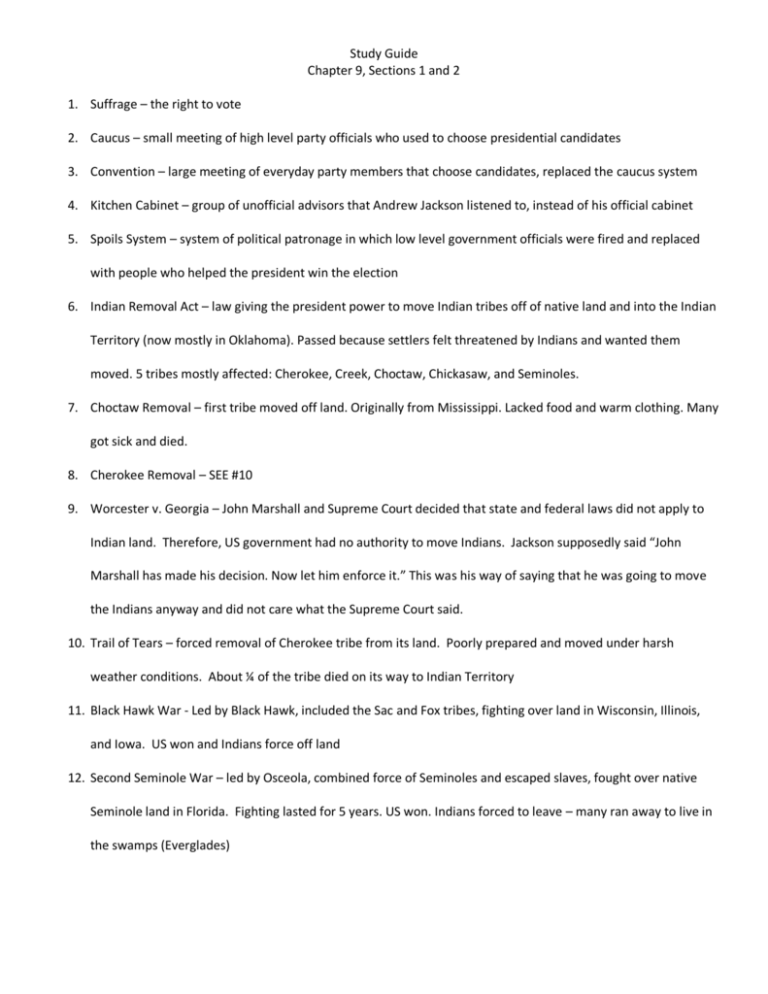
Study Guide Chapter 9, Sections 1 and 2 1. Suffrage – the right to vote 2. Caucus – small meeting of high level party officials who used to choose presidential candidates 3. Convention – large meeting of everyday party members that choose candidates, replaced the caucus system 4. Kitchen Cabinet – group of unofficial advisors that Andrew Jackson listened to, instead of his official cabinet 5. Spoils System – system of political patronage in which low level government officials were fired and replaced with people who helped the president win the election 6. Indian Removal Act – law giving the president power to move Indian tribes off of native land and into the Indian Territory (now mostly in Oklahoma). Passed because settlers felt threatened by Indians and wanted them moved. 5 tribes mostly affected: Cherokee, Creek, Choctaw, Chickasaw, and Seminoles. 7. Choctaw Removal – first tribe moved off land. Originally from Mississippi. Lacked food and warm clothing. Many got sick and died. 8. Cherokee Removal – SEE #10 9. Worcester v. Georgia – John Marshall and Supreme Court decided that state and federal laws did not apply to Indian land. Therefore, US government had no authority to move Indians. Jackson supposedly said “John Marshall has made his decision. Now let him enforce it.” This was his way of saying that he was going to move the Indians anyway and did not care what the Supreme Court said. 10. Trail of Tears – forced removal of Cherokee tribe from its land. Poorly prepared and moved under harsh weather conditions. About ¼ of the tribe died on its way to Indian Territory 11. Black Hawk War - Led by Black Hawk, included the Sac and Fox tribes, fighting over land in Wisconsin, Illinois, and Iowa. US won and Indians force off land 12. Second Seminole War – led by Osceola, combined force of Seminoles and escaped slaves, fought over native Seminole land in Florida. Fighting lasted for 5 years. US won. Indians forced to leave – many ran away to live in the swamps (Everglades) 13. Tariff of 1828 (Tariff of Abominations) a. Who liked it and why? North because it protected their new industries from British competition and the West because they thought the increased $$ would result in internal improvements – roads and canals b. Who disliked it and why? South because they did not have industry, and because they felt it would hurt trade with British, who they still relied on for trade 14. Calhoun and Nullification SEE #15 15. Nullification Crisis – a. Who was on each side of the conflict? i. Pro Nullification – Calhoun and Hayne (both from SC) ii. Anti-Nullification – Webster and Jackson b. South Carolina’s Role i. Came up with nullification concept – states can choose not to enforce a law they feel is unconstitutional ii. Threatened to secede if they were force to follow “unconstitutional” laws iii. Raised $$$ and troops to defend themselves if necessary c. Jackson’s Role i. Threatened to hang all of the leaders of the Nullification movement ii. Later worked to lower, but not eliminate, tariff d. Clay’s Role i. Worked out a compromise between Jackson and Calhoun – lowered tariff to 20% 16. Force Act – law that gave President power to use US troops to collect tariffs in states that refused to collect them 17. Pet banks – state banks in which the national government deposited money instead of the national bank in the attempt to “kill” the national bank 18. Bankruptcy – the state of complete financial ruin 19. Depression – economic state in which business and employment decline sharply or stay at a very low level 20. Propaganda - information, ideas, or rumors deliberately spread widely to help or harm a person or group PEOPLE – know what these people did or stood for. Andrew Jackson, Nicholas Biddle, Roger Taney, Henry Clay, John C. Calhoun, William Henry Harrison, John Tyler, Martin van Buren, Osceola, Black Hawk, John Marshall IDENTIFY – 5 of these will be on the test as identification items. Know as much as you can about each. Trail of Tears Spoils System Pet Banks Kitchen Cabinet Force Act Black Hawk War Seminole War Worcester v. Georgia PARAGRAPH Either Tariff of Abominations OR Nullification.
